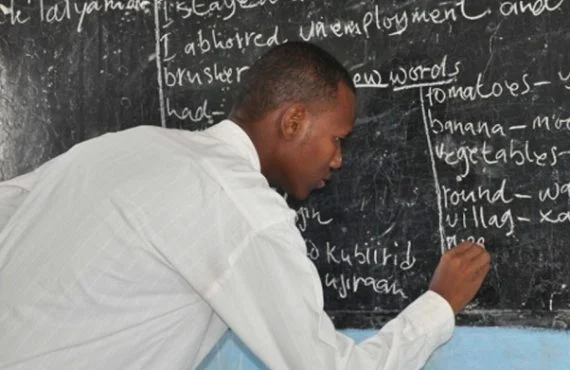A storm of controversy erupted in Delta State after the Post Primary Education Board (PPEB) issued a directive mandating secondary-school staff to purchase ICT tablets through direct payment or enforced salary deductions.
According to the memo dated July 23, 2025, any member of staff that failed to comply would not be considered for promotions.
Many teachers, especially those with income lower than the national minimum wage, described the policy as exploitative, citing economic hardship.
Others questioned the rationale behind foisting new gadgets on teachers with smartphones already. They cited a previous state scheme conducted between 2014 and 2018 where teachers were offered second-rate laptops despite the deduction from their salaries.
The backlash reignited public debate about systemic inequality, which allows for politicians to enjoy luxury vehicles and hefty allowances while essential workers grapple with rising costs.
Facing widespread condemnation from teachers’ unions and rights groups, the state’s education board rescinded the memo and reversed its condition for promotion
The power of the group
This tablet episode mirrors similar events in Nigeria’s history, when government policies clashed with public interest. Start with the Ali Must Go protest in 1978, when university students objected to the proposed hike in meal tickets.
The 2012 demonstrations and the EndSARS protests are recent examples showing how citizen resistance has nipped unfavourable structures in the bud and turned the tide of governance.
In the Delta State case, teachers and rights groups transformed what was a one-sided directive into a collective flashpoint. Not only did they resist the deduction plan, but their agitations also uncovered deep-rooted inequities in the public sector.
A recurring pattern
Delta’s case is not isolated. In Ondo State, teachers were recently mandated to purchase a ₦130,000 state-issued certificate to qualify for promotions, despite its lack of recognition. These practices reflect a troubling trend where policies disguised as reforms are used to extract revenue rather than empower workers.
Nationwide, many teachers are owed months of salary arrears, with several earning below the legal minimum wage. Governors and legislators, on the other hand, continue to benefit from bloated allowances and perks, further widening the inequality gap and deepening public discontent.
Lessons and the road ahead
For all its triumph, the Delta case must go beyond revoking a single memo. It must ignite accountability. Who approved the vendor? Was there a budget allocation for the tablets? Are similar exploitative deductions happening in other sectors?
More important, this case raises a critical question: can Nigeria build a digitally literate teaching workforce without exploiting them? If the goal is genuine reform, investment, not imposition, must lead. Providing tools and training freely, rather than through coercion, is the first step toward sustainable development in education.
While specific figures for teachers living below the poverty line in Nigeria are not readily available, it is widely acknowledged that a significant percentage of teachers in Nigeria live in poverty.
Nigeria’s overall poverty rate is high, with estimates suggesting that over 56% of the population lives below the poverty line. This, coupled with the relatively low salaries and poor working conditions faced by many teachers, contributes to a situation where a substantial number of educators are likely living in poverty.
Meanwhile, nine states are yet to embrace the minimum wage policy for their teachers, while some currently owe teachers backlog payments, bonuses, or promotion arrears. Introducing digital tools is important, but it must not come at the cost of dignity, survival, and fairness.
This incident should serve as a warning and a template. Policymakers must prioritise consultation, transparency, and equity in policy rollouts. Meanwhile, the people must remember the strength of their voice. The Delta tablet protest was successful because of collective resistance.
When citizens speak—and keep speaking—governments listen.
A controversial policy by Delta State's Post Primary Education Board required secondary-school staff to purchase ICT tablets through direct payment or salary deductions, with non-compliance affecting promotions. The policy faced backlash, especially from lower-income teachers who deemed it exploitative amid economic hardships. It mirrored past Nigerian incidents where government policies clashed with public interest, such as the 1978 Ali Must Go protests and the 2012 fuel subsidy demonstrations. Resistance led by teachers' unions and rights groups resulted in the policy's reversal, highlighting systemic inequalities as politicians received luxury benefits while essential workers struggled.
This situation is part of a broader national issue, as evidenced by similar occurrences in Ondo State and widespread teacher salary arrears nationwide. The incident underscores the need for genuine reform through investment rather than exploitation, emphasizing fair compensation and conditions for educators. The event serves as a reminder of the power of collective action in policy changes and the importance of transparency, consultation, and equity in governance. Policymakers must learn from this to ensure fair and sustainable development in education without diminishing dignity or survival.






